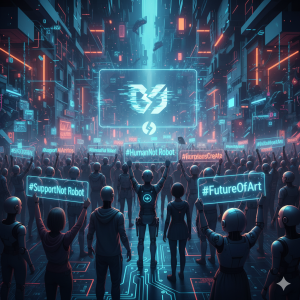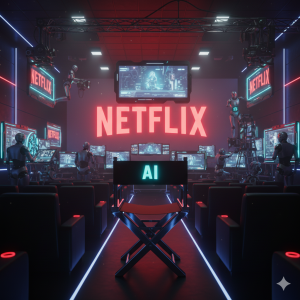🌍 Top Global Trends in 2025: AI, Sustainability & the Future of Work

In today’s fast-paced digital world, staying ahead of the latest tech, business, and environmental trends can determine success or irrelevance. Here’s a look at what’s defining 2025 — and how you can stay a step ahead.
🤖 The Rise of AI and Machine Learning
Artificial Intelligence (AI) and Machine Learning (ML) have officially moved from buzzwords to business backbones. From personal assistants that now plan meetings intelligently to AI-driven customer service bots that sound almost human — the line between automation and creativity continues to blur.
When I tested an AI writing assistant recently, I realized something surprising — it wasn’t just completing my thoughts, it was predicting the tone I wanted to use. That’s where we are in 2025: AI that not only follows instructions but understands human intent. Companies across Pakistan, India, and the U.S. are now integrating similar systems to speed up customer queries, detect fraud, and even generate marketing visuals in seconds.
According to a report by McKinsey, AI could contribute over $15 trillion to the global economy by 2030. The biggest winners? Startups that harness AI early for innovation, personalization, and scalability.
Industries Transformed by AI
- Healthcare: AI tools now predict patient risks before symptoms appear.
- Retail: Smart recommendations personalize shopping experiences to the individual.
- Education: Adaptive learning apps are teaching in local languages, especially in South Asia.
- Finance: AI bots detect suspicious transactions faster than human analysts ever could.
🌱 Sustainability Takes Center Stage
Sustainability is no longer just a corporate checkbox — it’s a global expectation. In 2025, more consumers are asking hard questions: “Where did this product come from?” “How was it made?” Transparency and ethical production have become deal breakers.
When I visited a local supermarket in Lahore recently, I noticed entire aisles dedicated to “eco-certified” goods — a trend that mirrors global retail. Big brands like Unilever and Tesla are now racing to achieve net-zero emissions before 2030. Even small businesses are switching to recyclable packaging and renewable energy sources.
Countries are also tying sustainability to innovation. In the UAE, AI-powered drones now monitor desert farming to minimize water waste. Meanwhile, Pakistan’s “Green IT Initiative” encourages tech startups to adopt solar-powered data centers — blending climate responsibility with digital progress.
As global temperatures rise, sustainable innovation isn’t optional — it’s survival. For individuals, supporting eco-friendly companies and reducing carbon footprints can create ripple effects across industries.
🌍 Key Sustainable Practices Trending in 2025
- Eco-commerce: Online stores promoting zero-waste packaging and green logistics.
- Renewable AI data centers: Solar- or wind-powered tech infrastructure.
- Ethical tech production: Recycled metals and sustainable chip manufacturing.
- Corporate transparency dashboards: Real-time carbon tracking for global brands.
For more details, explore the United Nations Sustainable Development Goals website — it’s the roadmap for every forward-thinking business in 2025.
💻 The Evolution of Remote & Hybrid Work
Remember when remote work felt like a temporary pandemic phase? That era is long gone. In 2025, remote and hybrid work have become the default for millions of professionals across tech, design, education, and marketing.
Companies have realized that productivity isn’t about where employees sit — it’s about how they collaborate. Advanced virtual environments, powered by VR and AI, now make it possible for teams across continents to brainstorm in shared digital “rooms.” Imagine attending a virtual office in Karachi with colleagues appearing beside you from London and Toronto — all in real time.
A growing number of Pakistani firms are now adopting hybrid policies, allowing employees to work three days from home and two from the office. This flexibility has improved both mental health and retention rates.
🌐 Tools Powering Remote Work in 2025
- AI-powered meeting summaries: No more note-taking — Gemini and Zoom AI handle that.
- Cloud security tools: Protecting remote workers with end-to-end encryption.
- Virtual coworking spaces: Team bonding in gamified digital environments.
- Productivity analytics: AI tracks work trends, not hours, promoting better work-life balance.
🚀 The Road Ahead: What This Means for You
The convergence of AI, sustainability, and flexible work models is shaping a more efficient, balanced world. For professionals, it means upskilling fast — learning how to collaborate with AI tools, understand sustainability metrics, and manage work-life flexibility in digital-first environments.
If you’re a business owner, 2025 is your year to evolve: automate smarter, go greener, and embrace remote talent globally. The companies that adapt now will lead the market by 2030 — the ones that hesitate will fade quietly.
As the saying goes: “The future isn’t waiting — it’s already here.” The question is, how fast are you moving toward it?









